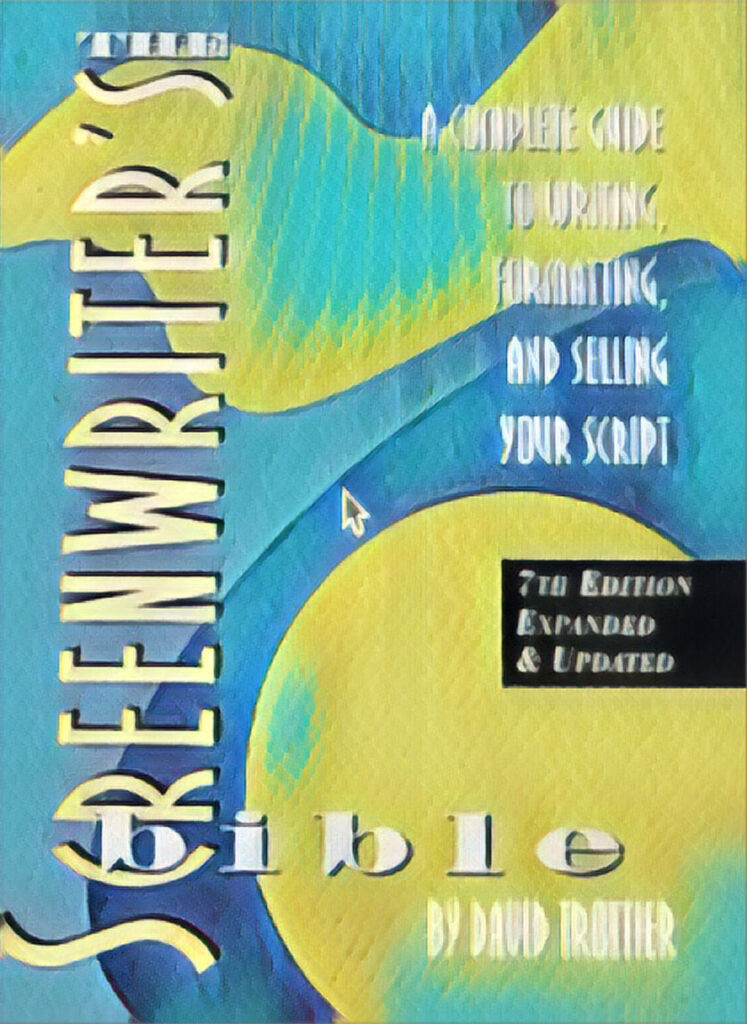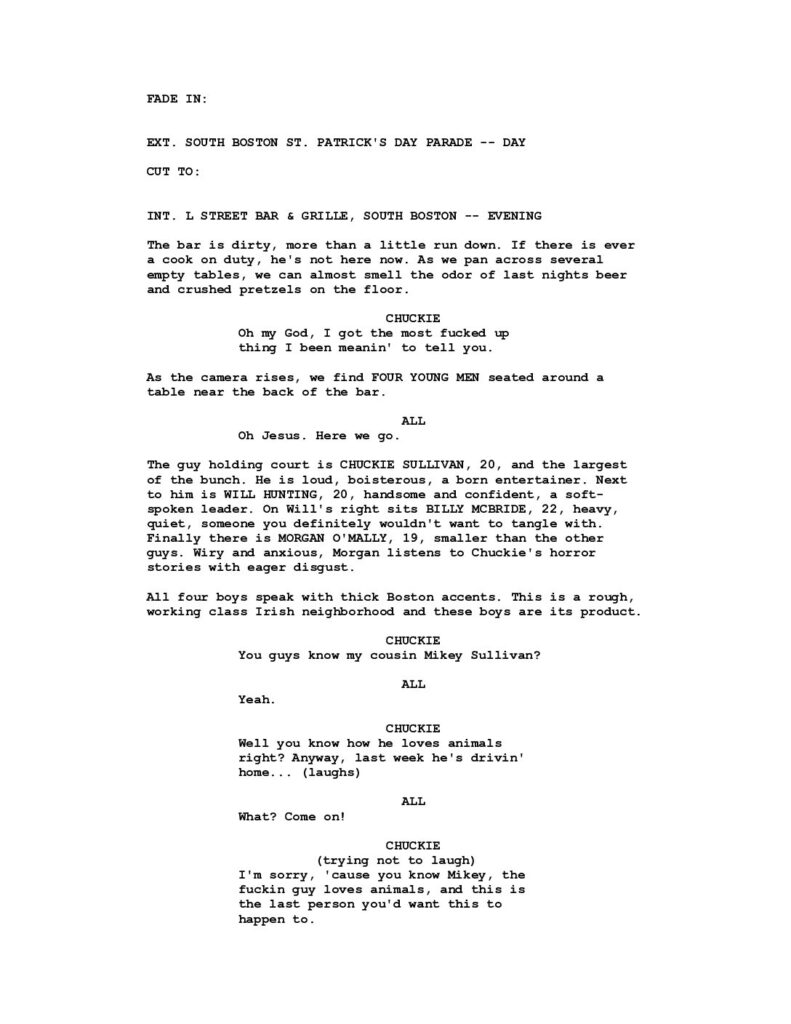Using capital letters shouldn’t be a big deal.
As mentioned, you want to use them when you introduce a character for the first time. But when else should you use them?

What does Dave Trottier’s The Screenwriter’s Bible say?
The below citation is from page 290.
“You must use all CAPS for the following:
- Character first appearances.
- Technical instructions, including camera directions, editing directions, the word SUPER, special effects, etc. These incidents should be rare.
You may use CAPS (If you wish) for the following: 1) sounds; 2) the words on signs, book titles, news headlines, etc., and 3) superimposed words. For example: SUPER: “TWO YEARS LATER.” Concerning the words referred to in numbers 2 and 3, make sure you place quotation marks around those words regardless of whether or not you type them in CAPS.
You should not CAP anything else in your narrative description unless specifically requested by the person asking for your script. Do not use CAPS for props or other objects that you want to emphasize. That’s a shooting-script convention. If you must emphasize any words of narrative description, underscore them, but do so rarely. I would expect to see no more than one or two (maybe three) instances in any screenplay.
In summary, keep CAPS to a minimum. I encourage my clients to CAP character first appearances and important sounds (if they wish). That’s about it except for an occasional SUPER or necessary technical direction.”
What does Bob Saenz’s That’s Not the Way It Works say?
For the uninitiated, this is an excellent resource regarding screenwriting. My Kindle doesn’t give exact page numbers, but around pages 13-14, he writes:
“Capitalized sounds? BAM. BOOM. CRASH.
Capitalized props? CAR. BEER BOTTLE. SANDWICH.
I had one writer tell me those things needs to be there for the sound and prop departments, so they know exactly where they are in the film.
I hate to tell you this, but there are no sound or prop departments in a spec script. There are no departments at all. Nobody has been hired for these positions because all the film is, right now, are words on a page. You only have departments if the script sells or goes into production, then those things go into a shooting script that a production secretary types. Not you.
By the time a sounds or prop department sees the script, it has been rewritten so many times it doesn’t resemble what you wrote in the first place, a subject I will cover in a later chapter. So, ALL those WORDS capitalized in YOUR script just look RIDICULOUS and yes, take your reader out of the story.”
(I agree. IT can look ridiculous)
Let’s Look at Good Will Hunting:
Here is page 2 from Matt Damon’s and Ben Affleck’s Oscar-winning script:

The only things that are capitalized are the characters names and “FOUR YOUNG MEN.” (Sure, does it bend the guidelines of what was said above? Slightly, but it does draw attention to the four young men in a bar of rough and tumble Southies).
Notice how clean (and uncapitalized) everything is? We can assume that they’re drinking, but we note how “GLASSES” isn’t capitalized (or even present).

